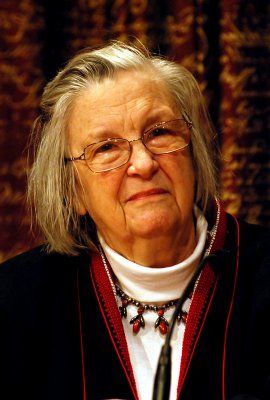Elinor Ostrom: Fighting the Tragedy of the Commons

Among the recipients of the 2009 Nobel Memorial Prize in Economics was Elinor Ostrom, for her analysis of economic governance, especially in relation to the commons. While this choice took many in the profession by surprise, her life-long quest for an understanding of successful common property resource management holds important lessons for our future.
(...)
The generalizable insights that she extracted from this mass of disparate evidence were collected together in her enormously influential 1990 book Governing the Commons. Here she proposed a set of principles that were associated with sustainable resource management—clear boundaries, explicit rules, effective monitoring, graduated sanctions for violators, mechanisms for conflict resolution, broad participation in governance, and relative autonomy from higher-level authorities. Successful governance typically required a nested hierarchy of procedures, with rules regulating routine actions at the base, collective choice procedures for altering these rules at a higher level, and mechanisms for constitutional choice at the top. These multilevel decision-making procedures she called polycentric games. (...)
A turning point in the literature came with her 1994 book Rules, Games and Common-Pool Resources, co-authored with James Walker and Roy Gardner, where a comprehensive collection of field and laboratory evidence was compiled to explain how resource users could achieve collective action in a controlled laboratory setting. These confirmed the widespread use of costly punishment in response to excessive resource extraction, and also demonstrated the power of communication and the critical role of informal agreements in supporting cooperation. The philosopher Thomas Hobbes (1588-1679) had asserted that agreements had to be enforced by governments: Covenants without a sword are but words, he wrote. Ostrom took issue with this. As she put in the title of an influential article, covenants—even without a sword—made self-governance possible.
Ostrom’s more recent work concerned two major and vexing issues of critical contemporary importance—climate change and the digital commons. The effectiveness of polycentric governance systems for local commons gave her hope that similar structures could be designed at a global scale, with transnational institutions regulating the behavior of component entities. And her most recent work—collaborative with Charlotte Hess—concerned the production and sharing of knowledge in the digital age. This too could be studied as a kind of common-pool resource, for which governance structures are essential to proper functioning. (...)
http://www.booksandideas.net/Elinor-Ostrom-Fighting-the-Tragedy-of-the-Commons.html
